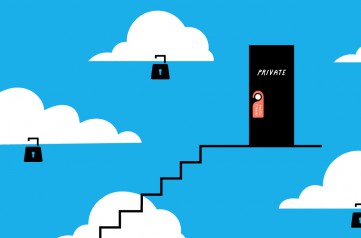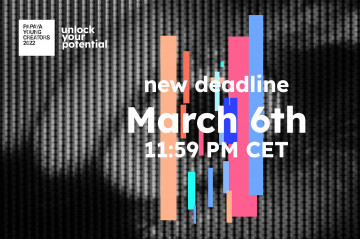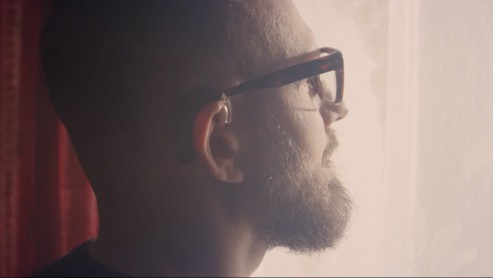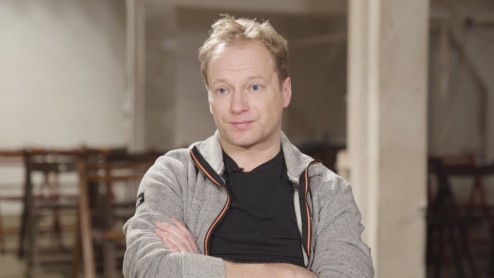Mick Champayne | The Future (of Gaming) is Female10.10.2019
The word “gamer” often conjures up images of pale, lazy dudes who live in their mom’s basements. But just as the gaming industry is changing with all the advancements of technology, so is its user base. It's gone from a household pastime to a formally organized and internationally recognized competitive pursuit. Currently, 46% of gamers are women, and in 2020 an all-women, professional eSports team will be competing on the international circuit. What does the future of gaming look like when it’s female?
What makes a gamer a gamer? It’s a debate you can dive into many a rabbit hole on forums and find a whole bunch of people arguing the definition. As a casual gamer myself (I’ll never say no to an N64 Goldeneye 007 showdown), I’ve noticed there are many different types of gamers out in the wild—for example:
-
The old school gamer, who swears allegiance to Atari and lives in a Super Mario World (this includes me);
-
The social gamer, who loves to organize game nights at bars with IRL friends (because for those who aren’t in the know, board games are having a comeback);
-
The hardcore gamer, what non-gamers typically picture: someone who eats, sleeps and breathes video games;
-
And the professional gamer: the Michael Jordans and David Beckhams of the gaming world, who’ve managed to figure out how to get paid to play professionally.
Most likely, you are picturing a white cishet man, right? But with more gaming options and platforms than ever before, gamers these days come in all ages, shapes, and sizes. The gaming industry is huge—with no signs of slowing down. In 2014 there were 1.8 billion gamers worldwide, and by 2021, it’s expected to reach over 2.7 billion.
The industry and culture of video games have long been considered the arena of masculine and tech-savvy men. But inclusivity is the name of the game, with women becoming an unmistakable and largely untapped consumer base. In 2019, female gamers accounted for nearly 46%. To put that into real-world numbers that you can wrap your head around, that’s close to 1 billion women.
One-third of women who play video games regularly experience sexual harassment or online abuse from other male gamers online.
But one type of gamer, the “girl gamer”, is still considered derogatory. It’s a stereotype that persists largely in part due to eSports—the world of competitive, organized video gaming. At a professional level, most teams competing are composed of men, facing off in games that are popular with at-home gamers, like Fortnite, League of Legends, Counter-Strike, and Call of Duty. They’re watched and followed by millions of fans all over the world, and it’s a billion-dollar industry that’s only poised to keep growing exponentially. The women gamers who participate in eSports, however, are often perceived as incompetent. Leahviathan, a British gamer with nearly 150k followers on the live-streaming platform Twitch, says, "it's the stereotype of a gamer who isn't there because she's good at games or enjoys games; she's just there because she's trying to impress guys or something. It's not true."
More broadly than the misogynistic tropes they face, a study published by Bryter found that one-third of women who play video games regularly experience sexual harassment or online abuse from other male gamers online. I’d be remiss not to include a nod to the infamous 2014 Gamergate controversy, an abusive campaign targeting mainly women, leading to hacking, doxing, and even rape and death threats.
The number of all-female eSports teams and organizations is on the rise. Currently, women make up about 35% of Fortnight’s player base, and in 2020 an all-women, professional eSports team will be competing on the international circuit.
But nevertheless, she persisted. With the growing influence of feminine activism, women are becoming active patrons on both a consumer and developer level. And with the global gaming industry on track to reach almost $140 billion by 2021, it’s fair to say women should have an equal say on the future of gaming.
Like any good battle strategy, it’s a multipronged approach. To start, the number of all-female eSports teams and organizations is on the rise. Currently, women make up about 35% of Fortnight’s player base, and in 2020 an all-women, professional eSports team will be competing on the international circuit. Dating app Bumble and eSports organization Gen.G collaborated to form Team Bumble. “The gaming communities have long been oriented around men and been somewhat toxic for women participating and even watching,” Gen.G CEO Chris Park acknowledged. “We want to change that and give voice to and promote how women bring gaming into their lives and friendships. We want to empower women to be part of this sport.”
The industry is slowly building momentum towards making higher quality games that are inclusive.
And from the business side, diversity and inclusion efforts, with production teams seeking female game developers to create a more welcoming experience and community for all genders. “You’re seeing a lot more women building games that are appealing to a whole different audience,” says Kiki Wolfkill, who oversees the megasuccessful Halo franchise as head of Microsoft’s 343 Industries. “The ecosystem itself is changing.” The industry is slowly building momentum towards making higher quality games that are inclusive, free of the violence and exploitation of women that is too often used as narrative texturing for today’s games.
Ultimately, if women have more opportunities to influence game design, from creating to playing, its impacts have a ripple effect—seeing more people like themselves in positions of power helps individuals recognize their own potential.
see also
- Mick Champayne | Life After Privacy

Trends
Mick Champayne | Life After Privacy
- Felix Umarov | The art of directing
 Papaya Films Original Series
Papaya Films Original SeriesPeople
Felix Umarov | The art of directing
- Papaya Young Creators Extends Submissions Deadline Through March 6
 Papaya Young Directors
Papaya Young DirectorsNews
Papaya Young Creators Extends Submissions Deadline Through March 6
- Arthur I. Miller | The Artist in the Machine
Trends
Arthur I. Miller | The Artist in the Machine
discover playlists
-
Nowe utwory z pierwszej 10 Billboard Hot 100 (II kwartał 2019 r.)
 15
15Nowe utwory z pierwszej 10 Billboard Hot 100 (II kwartał 2019 r.)
-
Papaya Films Presents Stories
 03
03Papaya Films Presents Stories
-
Papaya Young Directors 6 #pydmastertalks
 16
16Papaya Young Directors 6 #pydmastertalks
-
 03
03
